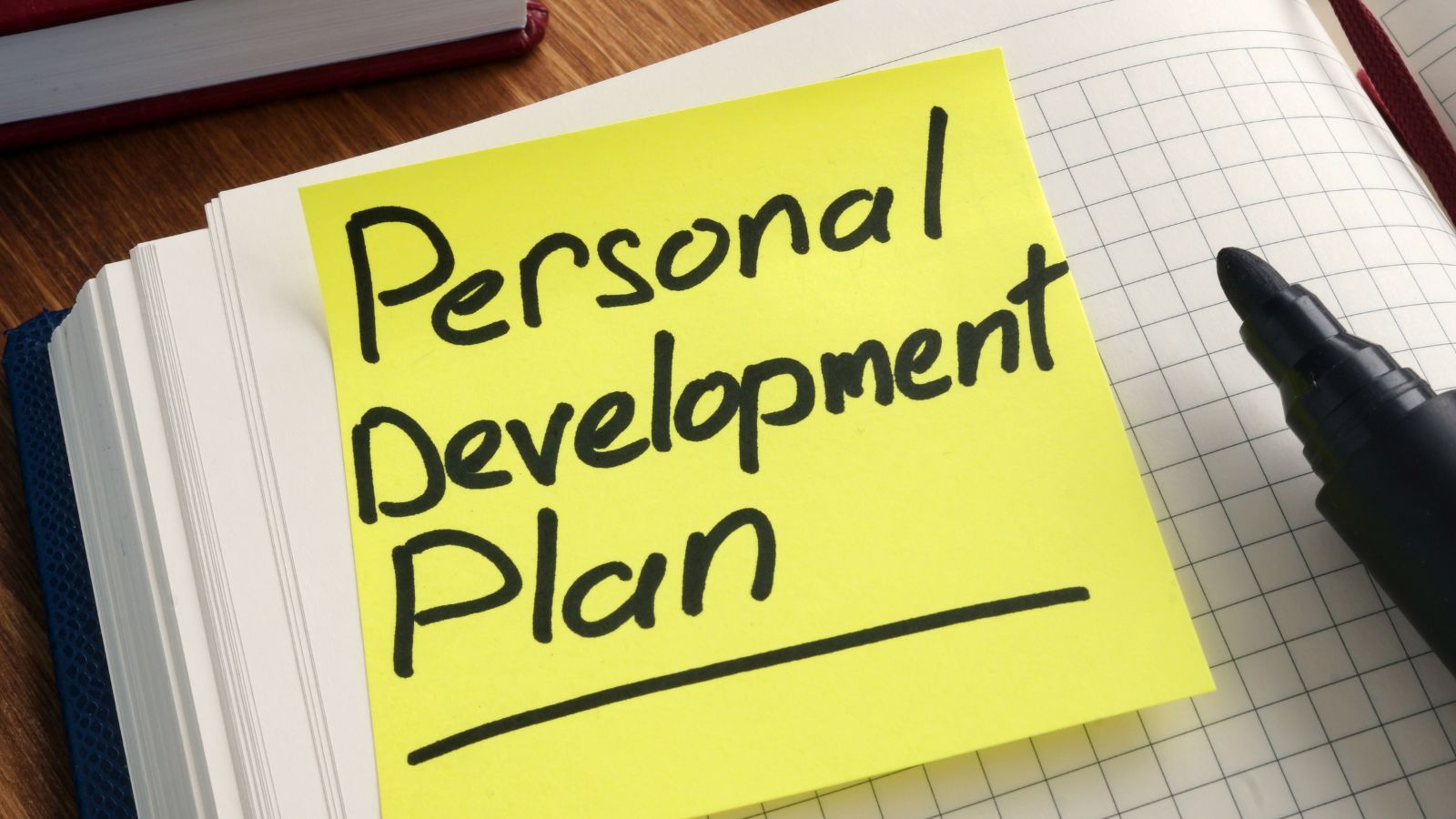Ready to achieve those goals you’ve been setting and never reaching?
Every year millions of people set big plans to better their careers, relationships and personal growth. They want change. They want progress. They want results. But here’s the brutal truth…
92% of people fail to achieve their goals by the end of the year.
The biggest difference between people who get what they want and those who don’t isn’t talent, luck or circumstance. It’s a robust personal development plan that works.
What you’ll discover:
- Why Most Personal Development Plans Fail
- The Science Behind Goal Achievement
- Building Your Personal Development Foundation
- Creating Actionable Steps That Stick
Why Most Personal Development Plans Fail
I’m gonna let you in on a little secret…
Only 3% of people actually set goals. And here’s the kicker – only 1% write them down.
All that explains the explosive growth in the personal development industry. The market was $48.4 billion in 2024 and is forecasted to grow to $67.21 billion by 2030. Lots of people are seeking answers.
But here’s the problem – most people approach personal development the wrong way.
They treat it like a New Year’s resolution instead of a systematic approach to growth. They focus on quick fixes instead of building sustainable habits that create lasting change.
Here’s what separates successful people from the masses:
They understand that personal development isn’t about motivation – it’s about having the right system.
The Science Behind Goal Achievement
Do you want to know the most powerful personal development secret?
Writing down your goals makes you 42% more likely to achieve them. This isn’t some old wive’s tale – it’s backed by a study from Dominican University of California.
But here’s the best part…
Researchers found that people who wrote down their goals, created action steps and sent weekly progress updates to a friend achieved their goals 76% of the time. In contrast, people with unwritten goals only achieved them 43% of the time.
Talk about a difference.
This is why a structured personal development course can accelerate your growth. A framework, accountability and proven strategies will drastically improve your odds of success.
But there’s one thing most people miss…
Goal setting is just the first step. You need a comprehensive personal development plan that addresses every part of your growth journey.
Building Your Personal Development Foundation
Crafting a personal development plan isn’t rocket science. But it does mean you have to be honest with yourself about where you are and where you want to go.
Start with these four foundation stones:
Self-Assessment
You can’t get better at something you don’t measure. Take stock of your current skills, strengths and areas for improvement. Be brutally honest – this isn’t about boosting your ego, it’s about getting real results.
Clear Vision
Most people set goals without a sense of their deeper purpose. What sort of person do you want to become? What impact do you want to have? A clear vision that excites and inspires you should be the foundation of your development plan.
Skill Gaps
Now identify the specific skills you need to reach your goals. Leadership? Communication? Time management? Technical expertise? Whatever they may be, don’t try to improve everything at once. Focus on the skills with the most impact.
Support System
Personal development isn’t a solo journey. Find people who push you to keep growing. This could be mentors, coaches, accountability partners or like-minded peers.
Creating Actionable Steps That Stick

Here’s where most personal development plans fall down…
People make these big plans but don’t break them into bite-sized, actionable steps. They set massive goals without considering the daily habits and behaviors needed to achieve them.
Focus on progress, not perfection. Tiny, consistent actions build up over time to massive results.
Start with Keystone Habits
Pinpoint one or two keystone habits that will naturally cascade into other positive behaviors. A morning routine might set the stage for better time management, more energy and focus for the rest of the day.
1% Rule
Shoot for 1% improvement every day. It’s an insignificant sounding number, but these little increments add up to crazy results over time. You’ll be 37 times better after one year if you improve just 1% each day.
Track Everything
Measure what gets managed. Keep a record of your progress, setbacks and wins. This data will let you identify patterns and course correct when necessary.
Accountability
Remember that 76% success rate from people sharing their progress with a friend? Make regular check-ins and accountability a non-negotiable part of your plan.
Making It Sustainable
Personal development isn’t a destination – it’s a lifelong journey.
Long-term success hinges on building systems that work even when motivation wanes. Motivation will always wane. What matters is having habits and structures that keep you chugging along.
Focus on these elements:
Look at your natural energy cycles and build your plan around them. If you’re not a morning person, never ever schedule personal development activities at 5 AM.
Celebrate the small wins along the way. Recognition fuels motivation and helps keep momentum going during the tough periods.
Regular reviews keep your plan relevant as your goals and circumstances change.
Taking Action Today
Don’t wait for some magical alignment of the stars to kickstart your personal development journey. The best time to start was yesterday. But a close second is right now.
Start small. Be consistent. Focus on progress over perfection. Your future self will thank you for taking that first step today.
Putting It All Together
Creating a personal development plan for lifelong success breaks down into 3 simple principles: clarity, consistency and commitment.
Get clear on your goals. Be consistent with your daily actions. Stay committed when things get tough.
The science shows people who write down their goals and have a structured plan are way more likely to achieve them. The personal development market is only going to get bigger, so there’s never been more resources available to help you succeed.
Your success doesn’t depend on your starting point – it depends on your willingness to commit to a life of continuous growth and improvement.

